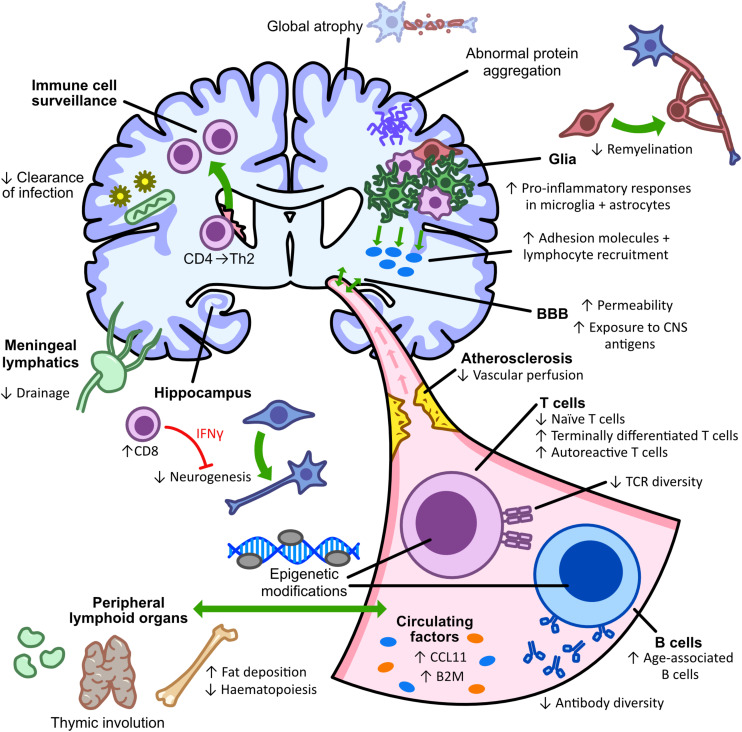FIGURE 2.
Aging alters CNS-immune interactions in health and disease. Aging is a major risk factor for neurodegeneration that is accompanied by progressive immunosenescence, inflammaging, atrophy, and neuroinflammation. Microglia and astrocytes are thought to respond more to pro-inflammatory cytokines, such as IFNγ and TNFα, and become prone to abnormal inflammatory activation; leading to reduced remyelination and enhanced lymphocytic recruitment. Subsequent aging-related changes in BBB permeability and lymphatic drainage also increase the infiltration of cytotoxic CD8+ T cells to the brain, which can inhibit neurogenesis through IFN-γ signaling. In the periphery, processes such as thymic involution and epigenetic modifications similarly alter the number of naïve CD4+ T cells and can diminish the antibody repertoire following an increase in age-associated pro-inflammatory B cells. By contributing to poor infection clearance, protein aggregation and altered immune cell surveillance, aging therefore has a detrimental impact on both the immune system and cognitive functioning.

